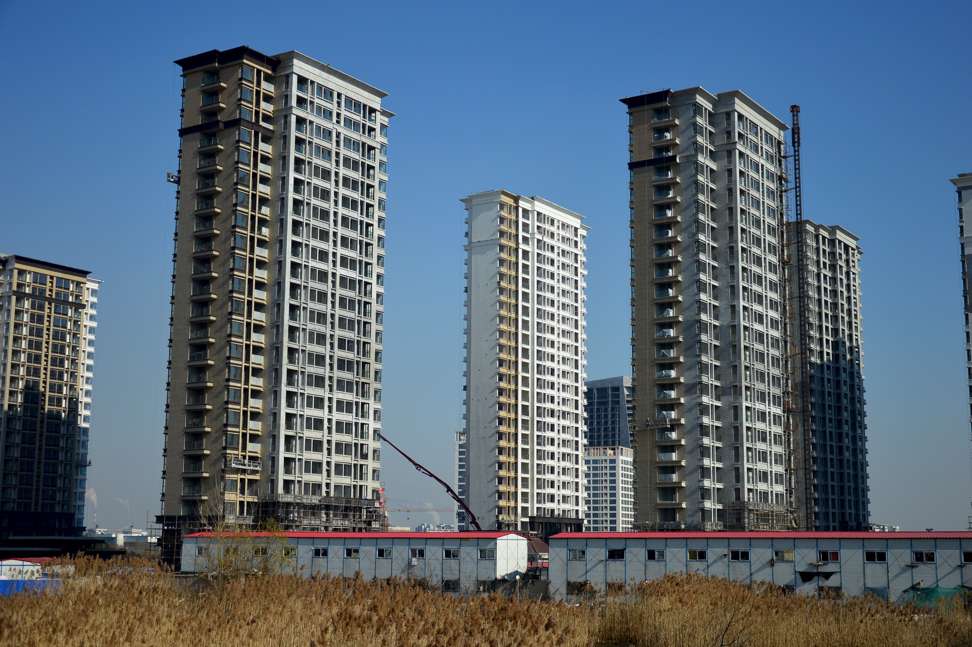
Finding the right niche crucial for property market success, says Orient Ruichen chief
Alternative investment firm eyes expansion in residential, senior living, industrial parks and logistics property sectors
As some one with over three decades of experience in the investment sector, Qiu Haibin has immense knowledge about alternative investments and China’s property market. Prior to joining Orient Ruichen, an alternative investment firm, Qiu worked in Bank of China’s corporate banking, direct investment, equity investment and mergers and acquisition segments. Qiu says that property is the most popular financial asset in China and hence extensively used as collateral. Though bad debts in China’s property sector have risen recently, it has also provided ample business opportunities for companies like Orient Ruichen, he said.
Can you tell us a bit about Orient Ruichen and its various businesses, especially in the real estate sector?
Orient Ruichen is backed by China Orient Asset Management Company, one of the largest bad asset managers in China. We are alternative asset managers who dabble in real estate, private equity investment and the securities market. In the real estate market, we focus on investment and financing, mergers and acquisitions, and bad asset restructuring. A unique point of our fund is that we have a sizable property development operation. We also run businesses most real estate private equity funds do in China. We also provide financing services for 60 to 70 of China’s top 100 developers and also participate in their M&A business. In addition, we offer equity and debt financing, or direct takeovers, or asset restructuring for small real estate companies.
In 2011 we joined hands with Greentown China Holdings, a top developer in China, for providing construction services to other developers. In terms of product types, we mainly do residential, senior care and living, and industrial parks. We have also launched a logistics property fund with Blackstone and Vanke. It could grow into China’s largest logistics property platform.
How does Orient Ruichen participate in bad asset investments?
Let me share with you an example of how we undertook the business in Nanjing. A big residential project in the city had halted development after the investor was embroiled in a legal dispute. Hundreds of buyers staged protests outside the local government. We stepped in and first cleared the company’s existing 800 million yuan debt problem. Later we invested additional 1.5 billion yuan to redesign and build the project. The project turned out to be a big success as we netted 2.6 billion yuan from the project sale.
One of the reasons why we could succeed is that we are able to grasp the right timing. We entered the project at a market low point, and sold it at a high point (in 2016 Nanjing’s sale of new homes in floor space terms rose just 1 per cent, while in value terms it jumped 56 per cent, according to the city government).
I think as asset managers we are better positioned than developers to judge the market and grasp the right timing. Investment is all about timing. Operation is important but it can hardly turn into fortunes if you have made the wrong investment decision in the first place. When we undertake due diligence, there are over 189 assessment points. Throughout the investment process there are always unexpected things, and how the team responds to these surprises is crucial. In contrast to the perception that people have about State-owned enterprises, we are a fully market-oriented company, in terms of recruitment, incentives and market responses. We always joke that we are more laborious than private firms.

What are the important attributes for a real estate fund?
As I mentioned before, the most important thing is the ability to grasp the market tempo. For example if the market rebounds after a slump, funds have to judge whether it is a short-term rebound or it has bottomed out. Mistakes means irreversible losses. If you think it is a short-term rebound, then you are better off by selling the inventory at reasonable prices before the market falls again.
Aside from understanding of the market, the second capability is bad-asset disposal ability. The third is property development and operation ability. There are very few companies that can integrate all these aspects together.
Another advantage that we have over others is that we can align resources in other sectors into property business. Investment is all about resource matchmaking. In today’s property industry it is important to identify the right niche.
How do you gauge the current market trends? Is this a good time to buy at the current low prices?
Not really. Personally, I think it is better to wait for some more time. I am not saying that the prices are going to fall further. The market downturn is first reflected in the shrinking turnover volume. The prices could hold for a while. Only when developers can’t balance their cash flows will they lower the prices. But this is rare. China’s past history has showed that those who wait for the prices to fall sharply before buying homes have always ended up with big disappointments.

